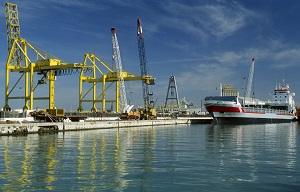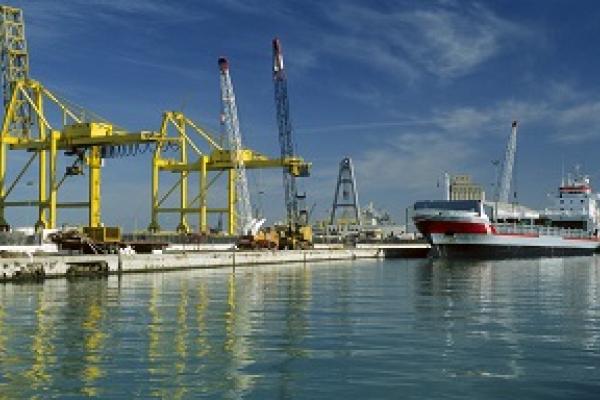
Steamship Mutual
Published: May 23, 2018
Image


In Lukoil Asia Pacific Pte Limited V Ocean Tankers (Pte) Limited (The Ocean Neptune) [2018] EWHC 163 (Comm) MJ Popplewell clarified whether a claim for time lost waiting for orders should be considered a demurrage claim. In addition, the judgment gave further clarification on the interpretation of demurrage time bars.
For background on the importance of complying with demurrage time bars please refer to the Club’s previous articles: The Adventure - Perils of Demurrage Time Bars, Beware Demurrage Time Bars and Documentation (Part II), and Demurrage Timebars - The Tide is Turning on “Sabrewing”.
Facts
By means of a fixture recap dated 8 November 2013 Lukoil Asia Pacific Pte Limited voyage chartered the tanker “Ocean Neptune” from Ocean Tankers (Pte) Limited for carriage of clean petroleum products from one safe port Taiwan to one to three safe ports Australia. The recap incorporated the ExxonMobil VOY2005 form and the Lukoil International Trading and Supply Company (“LITASCO”) Clauses, both of which were amended and supplemented in the fixture recap.
Notice of readiness was tendered at the port of Mailiao (Taiwan) on 17 November 2013 and the hoses were disconnected two days later. Thereafter the vessel proceeded to the first discharge port, Gladstone (Australia), where NOR was tendered on 2 December 2013. The ship remained at berth between 3 and 5 December 2013, when she shifted to the anchorage. The vessel remained at the anchorage until 15 January 2014, when the vessel was ordered to proceed to Botany Bay (Australia). The delay at Gladstone was caused by the refusal of the cargo receivers to accept delivery of the cargo due to alleged contamination.
The vessel discharged part of the remaining cargo at Botany Bay between 18 and 19 January 2014, and then proceeded to Port Alma to complete discharge between 22 and 24 January 2014.
Owners sent a demurrage claim by email on 6 February 2014 in the sum of US$ 772,327.87. According to the calculations made by Owners the total laytime used at each port was as follows:
(i) Mailiao – 57.25 hours;
(ii) Gladstone - 1,048.58 hours;
(iii) Botany Bay – 27.83333 hours;
(iv) Port Alma – 22.9333 hours.
Charterparty Terms
The arbitration award and subsequent appeal turned on the interpretation of the laytime and demurrage provisions. In particular:
LITASCO Clauses
2. Claims
a…... charterers shall be discharged and released from liability in respect of any claims owners may have under this charterparty (such as, but not limited to, claims for deadfreight, demurrage, shifting or port expenses) unless a claim has been presented in writing to charterers with supporting documentation within ninety (90) days for demurrage and 120 days for other claims from completion of discharge of the cargo under this charterparty.
b. For demurrage claims supporting documents must include whenever possible -
1. owners' calculation of the demurrage due; and
2. the certificate of notice of readiness tendered at each port of loading and discharge; and
3. the statement of facts for each loading and discharge berth which must be signed by the master or the vessel's agents and, wherever possible, the terminal; and
4. the vessel's pumping logs for each discharge berth; and
5. all letters of protest issued by the vessel or the terminal. The NOR.
3. Statement of facts clause
In order to be considered an authorized document, statements of facts must be signed by the master of vessel, vessel's agents, suppliers or receivers, if possible. If not possible, then master to issue a letter of protest to the dissenting party, submitted together with owners' demurrage claim.
4. Waiting for orders clause
If charterers require vessel to interrupt her voyage awaiting at anchorage further orders, such delay to be for charterers' account and shall count as laytime or demurrage, if vessel on demurrage. drifting clause shall apply if the ship drifts.
Award
Charterers rejected the demurrage claim and Owners commenced arbitration to recover these sums. Charterers defended the claim on the basis that the demurrage claims were time barred due to the failure of Owners to meet the requirements of LITASCO clause 2B, which demanded that all specified documents in support of the laytime calculations be provided within 90 days of the completion of discharge.
The Tribunal determined the point as a preliminary issue and agreed with Charterers’ view. The Tribunal held that the all demurrage claims (save that in respect of the delays at Gladstone) were time barred. The Tribunal held that Owners had not met the requirements of LITASCO clause 2B as they had failed to include a statement of facts for each of the ports of Mailiao, Gladstone, Botany Bay and Port Alma countersigned by the terminal, or if it was impossible to obtain such a countersignature, a letter of protest from the Master.
The Tribunal treated the claim concerning the time waiting at Gladstone as outside of the time bar defence on the basis that it was not a demurrage claim. Although the claim had originally been pursued by Owners as a claim for demurrage, Owners subsequently re-labelled it as time lost waiting for orders under LITASCO clause 4. The Tribunal concluded that the documentary requirements of LITASCO clause 2B would not apply to this claim as, from a practical point of view, time lost waiting for orders will often involve waiting off port limits; there may be no contact with shore representatives; or no communications/documents in relation to this period.
Appeal
Charterers appealed the Tribunal’s award in respect of the claim for the time waiting at Gladstone. As LITASCO clause 2B applied to “demurrage claims” MJ Popplewell had to decide whether a claim under LITASCO clause 4 was a "demurrage claim", or, as Owners submitted, that the fact that whilst the claim was to “count as” demurrage for the purposes of computation this did not make the claim itself one for demurrage.
The Court noted that there has been an abundance of recent authority on the principles applicable to construction of commercial contracts (see previous articles published by the Club – The Primacy of Language in Construction of (Commercial) Contracts, Contractual Interpretation – Commercial Common Sense and A More Literal Approach to Construction). The Court’s task is to ascertain the objective meaning of the language chosen by the parties. If there are two possible constructions, the Court is entitled to prefer the construction which is consistent with business common sense and to reject the other. It is for the Court to carry out this assessment by balancing a close examination of the language in the contract against the factual background and the implications of rival constructions.
The Court started by considering the language used in the Charter as a whole. Clause 13(d) of the ExxonMobil Voy2005 form identified that the “Charterer shall pay demurrage … for all time by which the allowed laytime specified in Part I (I) is exceeded by the time taken for the loading and discharging and for all other Charterer's purposes and which, under this Charter, counts as laytime or as time on demurrage” (our emphasis).
The Court considered that the language of the charter provided in clear terms that a LITASCO clause 4 claim was a demurrage claim as:
a) LITASCO clause 4 provided that the delay caused by waiting at anchorage shall “count as” used laytime or demurrage, a common drafting technique in charterparty terms to describe periods which would otherwise not form part of the laytime. In the context of clause 13(d) waiting time under LITASCO clause 4 was time taken for Charterers’ purposes, therefore falling squarely within clause 13(d), and giving rise to a claim for demurrage. The Court dismissed Owners’ argument and held that claims under clause 4 were demurrage claims.
b) The construction was reinforced by the fact that a claim for waiting time under LITASCO clause 4 was not necessarily a claim for all such time. The claim was not only to be quantified at the demurrage rate but was also to be qualified by the laytime otherwise used or not used in the course of the voyage. If a claim arose under the clause it would be necessary to take account of time used as laytime at other stages of the voyage. Claims under LITASCO clause 4 would be a part of a clause 13(d) demurrage claim, but not a separate or independent claim.
c) Unlike LITASCO Clause 4 which expressly used the wording “count as used laytime or demurrage”, clauses 5 and 7 of the Fixture Recap referred to claims being compensated at the “demurrage rate”. Where the parties wanted to draw a distinction between demurrage claims and other types of delay claim they had used clear language to do so.
d) It is inferred that where the parties had made specific additions and amendments to the standard form clauses they will have carefully chosen the language used.
The Court considered a number of points but concluded there were no commercial considerations that would suggest that LITASCO clause 4 claims were not “demurrage claims” on the basis that:
a) Clause 2 listed the documents that must be submitted along with the demurrage claims within 90 days of the final discharge. This clause is a common type of clause frequently inserted in voyage charterparties that enables the parties to accurately calculate any liability for demurrage and swiftly settle demurrage claims. Courts and tribunals regularly insist on strict compliance with this type of clause.
b) There is no reason to think that the documents that clause 2B required to be provided should be regarded as any less necessary when they determine a constituent element of a clause 4 claim, especially as used laytime is an essential element in calculating claims under both clauses.
c) Even though in some circumstances the documents listed in clause 2B might be irrelevant that would not be sufficient reason for failing to give effect to the clear wording of the contract.
The High Court allowed the Charterers’ appeal and in conclusion overturned the Tribunal’s decision in respect of the time incurred by the delays at Gladstone. As the status of the Gladstone claims were part of a preliminary issue in the arbitration reference the Court invited the parties to submit their views as to the next appropriate steps.
Comment
The Ocean Neptune provides an overview of the rules of interpretation applicable to commercial contracts but also highlights the importance of strict compliance with documentation requirements and time bar provisions. These are often short to effectively protect demurrage claims between operators and careful consideration must be given to ensure a claim is lodged in time with all necessary documentation.
Article by Miguel Caballero


